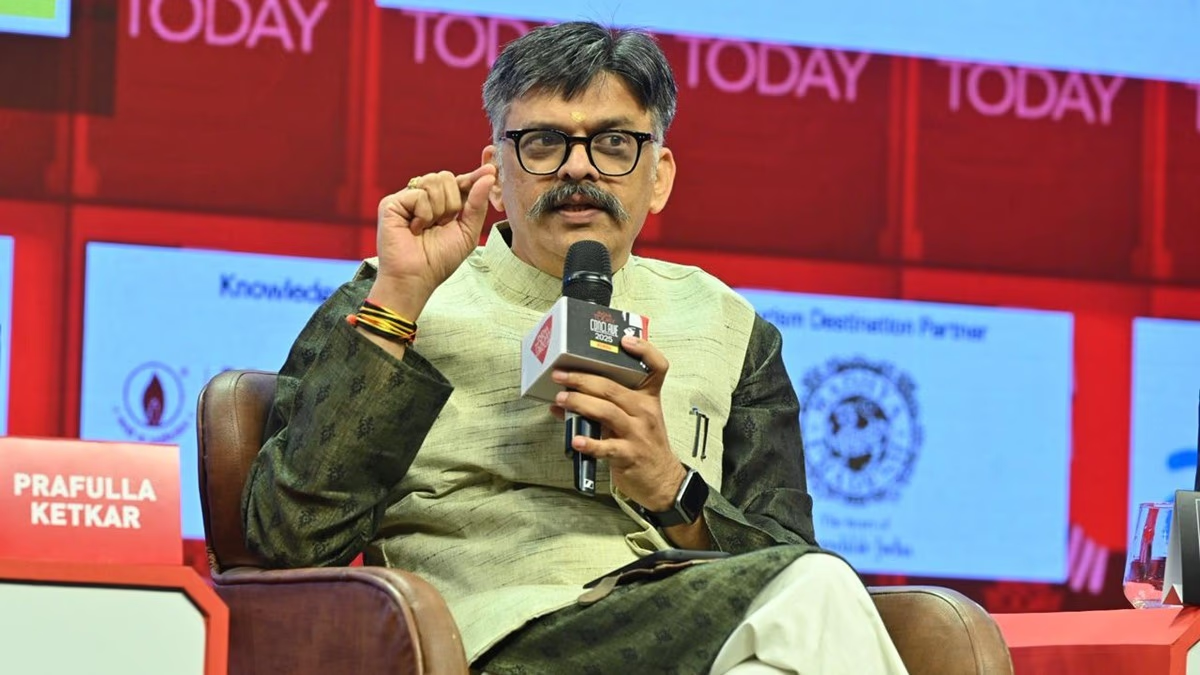At the India Today Conclave in Mumbai on Friday, during a session celebrating the centenary of the Rashtriya Swayamsevak Sangh (RSS), Prafulla Ketkar, editor of RSS’s mouthpiece Organizer, joined author Tushar Gandhi to discuss the ideology that defines the nation. Ketkar expressed that 'Hindu' defines India's unique civilizational strength.
He noted that India's spiritual democracy sets it apart in civilizational terms, allowing individuals the freedom to choose their deity. He cited Mahatma Gandhi as an atheist who embraced Hinduism and another Gandhi who claimed deep religiosity within the same faith.
Ketkar emphasized the diversity of the Hindu belief system, allowing for monotheistic, polytheistic, and pantheistic Hindus, stating that such freedom is unique to Indian soil. Reflecting on the RSS's journey, Ketkar mentioned its evolution from ridicule and contempt to acceptance, growing to include over 83,000 branches and 32 inspired organizations.
He asserted that while one might favor or oppose the RSS, it cannot be ignored. Ketkar explained that the RSS's concept of a Hindu Nation is about acceptance of shared civilizational heritage rather than exclusion. The Hindu Nation is about embracing unity, which defines the Indian ethos.
The grandson of Mahatma Gandhi, Tushar Gandhi, described the RSS as a symbol of hatred, division, and murder, reflecting that this ideology has persisted since independence. He remarked on contemporary India, where the voice of Nathuram Godse resonates more than that of Mahatma Gandhi, indicating the rise of sympathy towards Godse's views.
Gandhi also referenced old articles published in the Organizer and speeches by RSS leaders like Guru Golwalkar, suggesting divisive rhetoric has long been a part of RSS's history. He lamented the current embracement of Godse's ideology as a failure of the Gandhians to propagate Mahatma Gandhi's teachings.
In response to Gandhi, Ketkar highlighted Golwalkar's condemnation of Gandhi's assassination as a vile act and a blemish on society, contending that some critics express more hatred than the organization they accuse.
He mentioned Mahatma Gandhi's use of terms like 'Ram Rajya' and his advocacy for cow protection, querying if this stance was communal. Tushar Gandhi countered, clarifying that Mahatma Gandhi's concept of 'Ram Rajya' represented the rule of law and equality for the weakest in society, opposing any exclusionary views.
In summary, Ketkar viewed the RSS's century-long journey as a representation of unifying civilizational philosophy and inclusive thought, whereas Tushar Gandhi argued it thrived on foundations of hatred.




